Coffee Break with Justin Knoll
As a fourth generation REALTOR®, you could probably argue that Justin Knoll was born for this job. And his resume isn't too shabby either... youngest President of the Denver Board of REALTORS®, first-ever Chair of the Denver Metro Association of REALTORS®, President at Madison & Company Properties, 2019 CAR Chair and even cabinet maker, to name a few bullet points. We're certainly impressed with Justin, which is why we were thrilled to be able to catch up with him at Nixon's Coffee House to chat about his career, his involvement at the local and state Association level, his thoughts on the REcolorado and IRES merger, the Denver market and more.
DMAR: Can you tell us a little bit about yourself and how you got into real estate?
Justin: I'm a fourth generation REALTOR®. I grew up watching my mom, who was a single mom with two kids, and my grandparents run an office, so it was a natural transition for me to get into this. My mom encouraged me not to do it, but against her wishes, I did it anyway. I started about 18 years ago and have been going ever since.
D: Would you consider your mother to be a mentor in the industry?
J: Yeah, she was one of them. Although it's interesting, we do business very differently. My first day in real estate she told me a few things, but one of them was that she was not going to give up the friends and family business, so I better find another avenue (laughs). So that was a rude awakening. But that was kind of the best thing that could have happened to me. She put me to work. She didn't give me anything, but she was a mentor. I've had other mentors who have taught me different ways, but yeah, she's definitely my hero in this business for sure.
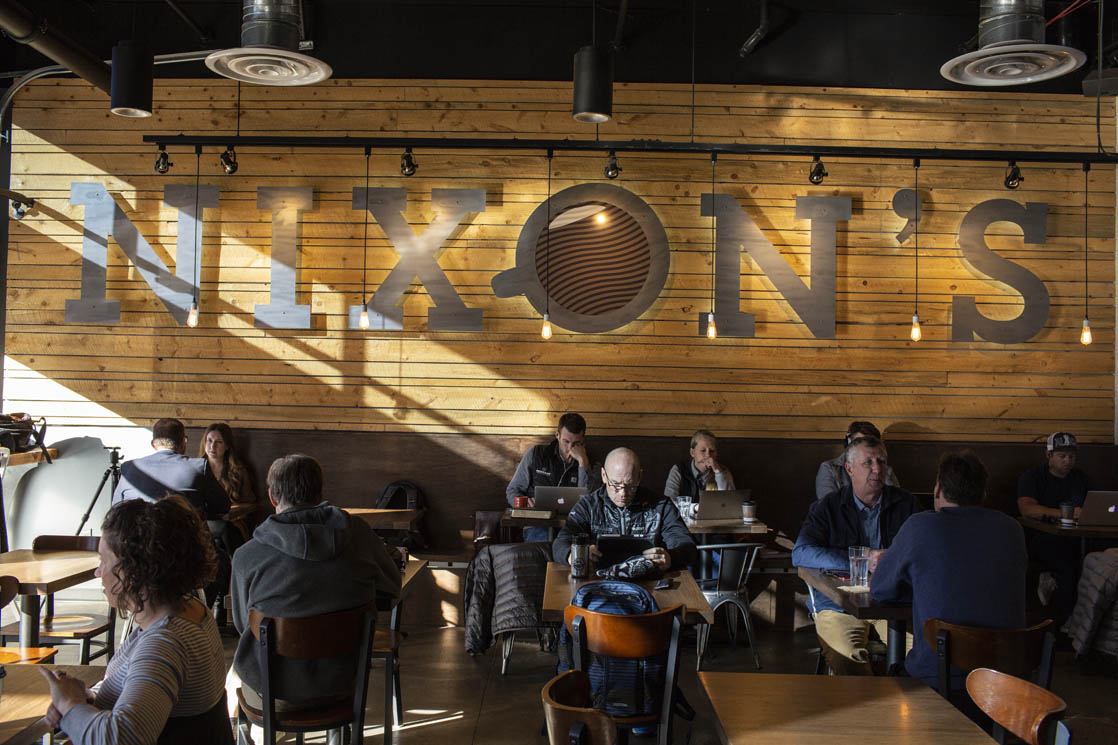
D: Starting off, what was the hardest part?
J: I think just being young. I was 23 years old and none of my friends were able to buy anything. Just finding that momentum and path of how I was going to find new business, who I was going to work with and who I was in the industry. I was young. I had very little experience and that does not equal a lot of trust. I had to wear a suit every day. I really did anything I could to separate myself from other 23 year olds and I learned a lot, I studied a lot and I just kept going. That was the biggest challenge I think - just finding new clients when I wasn’t able to tap into friends and family. It was tough.
D: Do you remember your first transaction?
J: Absolutely.
D: How did it go?
J: The biggest lesson I ever learned in real estate was the first transaction I did. It was a listing out in Piney Creek, Southeast Aurora. At that time in 2000, a listing came and it was $255,000, which was far and above most property prices. So it was pretty exciting and I of course listed the property. It was a divorced couple and I'll never forget their names. I can actually still see her face even 19 years later. But at the closing, the husband pulled me aside and said, "Hey, I want to talk to you for a minute." I said, "Yeah, absolutely. What's going on?" He said, "I thank you for taking care of my wife. I really appreciate that, but never once throughout the transaction did you ask what I was doing or if I needed help finding a new house. You strictly focused on making sure she was okay." That was a huge lesson for me. I had grown up with a single mom and that's where my attention went, just to make sure that she was alright. He said, "I'm appreciative of everything you've done, but I did find another agent and I'm buying a $400,000 house later this afternoon.” My heart just sunk. Number one, I didn't help him and number two, I missed out on an opportunity. So I will never forget that transaction ever in my life.
D: At least he was honest and gave you feedback.
J: Absolutely. Had he not, I would have never have been able to adjust. Now I actually teach about how to handle things when working with a divorced, or divorcing, couple.
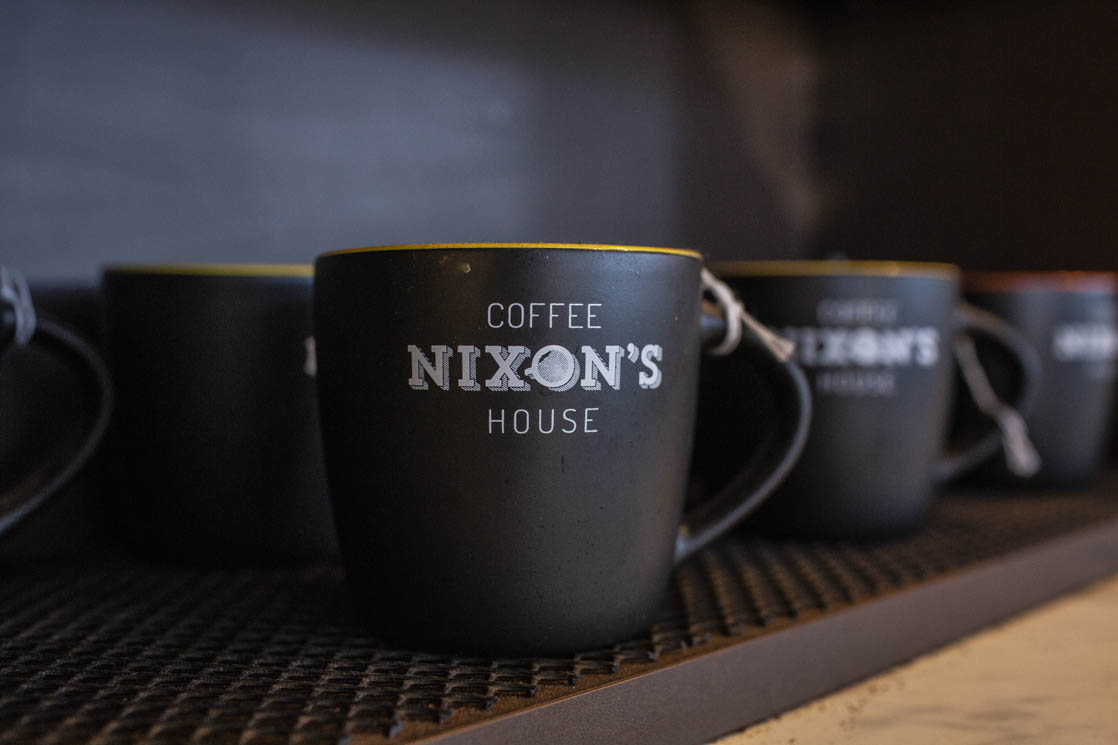
D: Can you tell us more about what it’s like working with your mom and wife? What are the advantages and challenges?
J: We're comfortable saying anything to each other. It's always a safe place. We always have the ability to have honest, open, candid conversations. I think that's a definite advantage, as well as the cohesion and the open candor. The disadvantage is that it does take over a lot of your conversations. It takes over weekends and dinners and all that, so we are very cognizant not to talk too much about it. I always pump the brakes and say, "Hey, I'm not interested in that part or this part." It’s hard to find a good balance since it's all consuming all the time and emotions do play a part. We're three different personalities so it can get frustrating at times.
[TWEET THIS] "It’s hard to find a good balance since it's all consuming all the time and emotions do play a part." 
D: Do you think you have a good work/life balance?
J: I think I'm finally getting to that point now, but it's definitely been a struggle. Probably my biggest struggle over the last 15 or 20 years has been putting so much into work and saying, "I'll deal with life later." What's changed for me is some of my mentors and leaders in my company have forced us to step back, take breaks, take vacations and have basically told us not to push too hard. We have rules like don't work too much after hours, or don’t send emails to others after hours. That's definitely helped the mentality of having that work/life balance, and now I don't feel guilty for not working. That's been the biggest transition for me. I always felt guilty if I wasn't working.
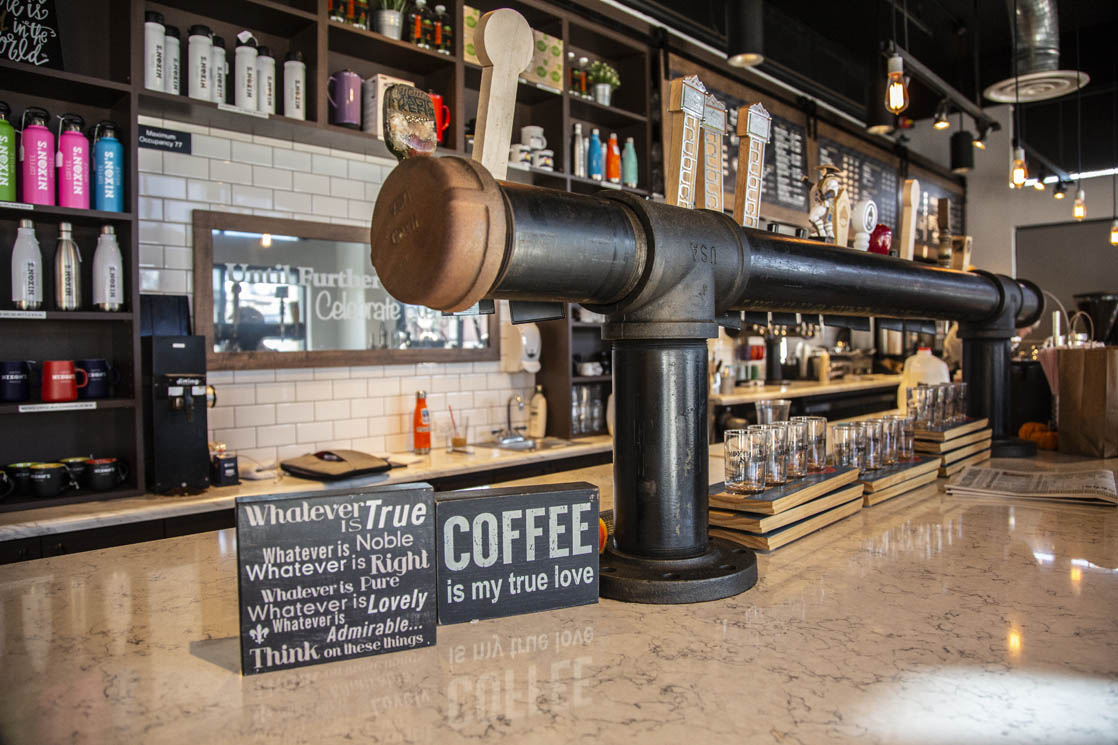
D: We definitely hear about people wanting to get into real estate so they have that flexibility and time for their families and personal lives, but it seems that’s more the expectation and perhaps not the reality.
J: Yeah. It's the complete opposite. I went probably seven or eight years without a vacation because I just got lulled into the same thing and kept telling myself, “Oh, I'll take one when it slows down.” Well, sometimes it doesn't slow down. In this business, you’ve got to go when you’ve got to go. When you're busy, you stay busy. It’s great, but it's been a challenge.
[TWEET THIS] "In this business, you’ve got to go when you’ve got to go. When you're busy, you stay busy. It’s great, but it's been a challenge." 
D: Walk us through a typical day in your life.
J: I wake up at about 6:00 AM and take the dog for a walk or hit the treadmill, something to get some movement in. Then I shower. I take long showers in the morning, it's part of my therapy. I don't know why; I just always do. So hot shower and then I usually get to the office – our Wash Park location – at about 8:45 AM, but I don't start meetings until 9:00 AM. Usually they're coaching or recruiting meetings with agents.
We have six different offices, so I do make the rounds. Every Tuesday, I go to a different office and spend time there. Typically, again, it's coaching or recruiting meetings. A lot of CAR (Colorado Association of REALTORS®) business meetings going on. That mixes in. I mean, there's a lot… I'm in meetings constantly. I'm probably in four, five, maybe six meetings a day with people. I do take one or two days a week to do some of the other administrative work or spend time getting projects going with my staff. I'm usually done around 5:00 PM, but it typically does carry over into the evening. I'll do other work then, but that's very typical for me to just be on the run all the time.
D: How long have you been a member of a REALTOR® Association?
J: My whole career, since 2000. I started in Aurora. It was a brokerage-mandated thing. My grandmother was in leadership at the North Metro Denver RELATOR® Association (which merged into DMAR) for a long time. I joined right away without hesitation and never looked back.
D: And you were the first chairman of DMAR. What was that like?
J: It was interesting. I was the last president of the Denver Board of REALTORS®, which was in existence for 123 years and was the longest standing trade organization in Colorado. That was important when we did the merger. We wanted to keep that long-standing charter. So we did that. The merger took about 16 months. So I was the last president of the Denver Board of REALTORS® and was the youngest in its history, and then I became the first Chair of DMAR. It was awesome and so much fun. There was a lot of positive energy around it that everybody really pulled together on what we were working on. The Board consisted of 30 directors, which is double what you have now. Our meetings were bigger and the discussions were longer, but I'll tell you, those 30 were more focused than any 30 I've ever been around. There was so much excitement to do things right. It was just action-packed and new things going on constantly.
D: How did those two years in leadership affect your business?
J: It helped me improve my time management skills and learn how to prioritize where I needed to spend my time. It really set me on the path to being able to take on more and be more productive. I had to choose - and be very wise with my choices - what I was going to do next. The other thing was networking opportunities. Our team does a great deal of business with referrals from around the city, the state and the nation. We network the heck out of this stuff. That's been huge for us. At the time it didn't feel like it. It almost felt like I was missing some business, but now I know that wasn’t the case.

D: What would you say to a newer agent or someone who hasn't been very involved in a REALTOR® Association about why they should join?
J: I think there's so many hidden tools and resources that you don't know that you get that can truly help you do business better. Whether it's networking with others, having a better understanding of legal ramifications or being aware of what's happening politically, there's so many avenues to be educated and ways to learn more that absolutely make you a better REALTOR®. Having more credibility with your clients is the biggest thing because it increases client retention and leads to more referral business. So I think just come in and meet people and get to know what the heck is going on and don't try to understand everything all at once. Just take pieces of it and understand what it means to you. I always use those words: what this means to you. Honestly, if you can find just one thing a month from the REALTOR® association that makes a difference to you, that's huge.
[TWEET THIS] "Whether it's networking with others, having a better understanding of legal ramifications or being aware of what's happening politically, there's so many avenues to be educated and ways to learn more that absolutely make you a better REALTOR®." 
D: And now you are Chair of the Colorado Association of REALTORS® (CAR). How is it different working more at the state level compared to the local level?
J: The state level is intense. We’re overseeing 32 local associations. We have to know what each is up to. We've got to know what their pain points are, how we can help, what tools we're seeing, etc. I think the biggest challenge for us is communication and making sure we have a clear, concise message and that's really what I excel at: boiling things down to what this means to someone. We’re less focused on the local details and more on how CAR can help the local associations do their jobs better, which is pretty interesting. The link between CAR and NAR is tremendous, too. There's so much information that's coming daily or even hourly, sometimes. It's constant and it’s a lot more work and intensity, but it's a lot of fun.
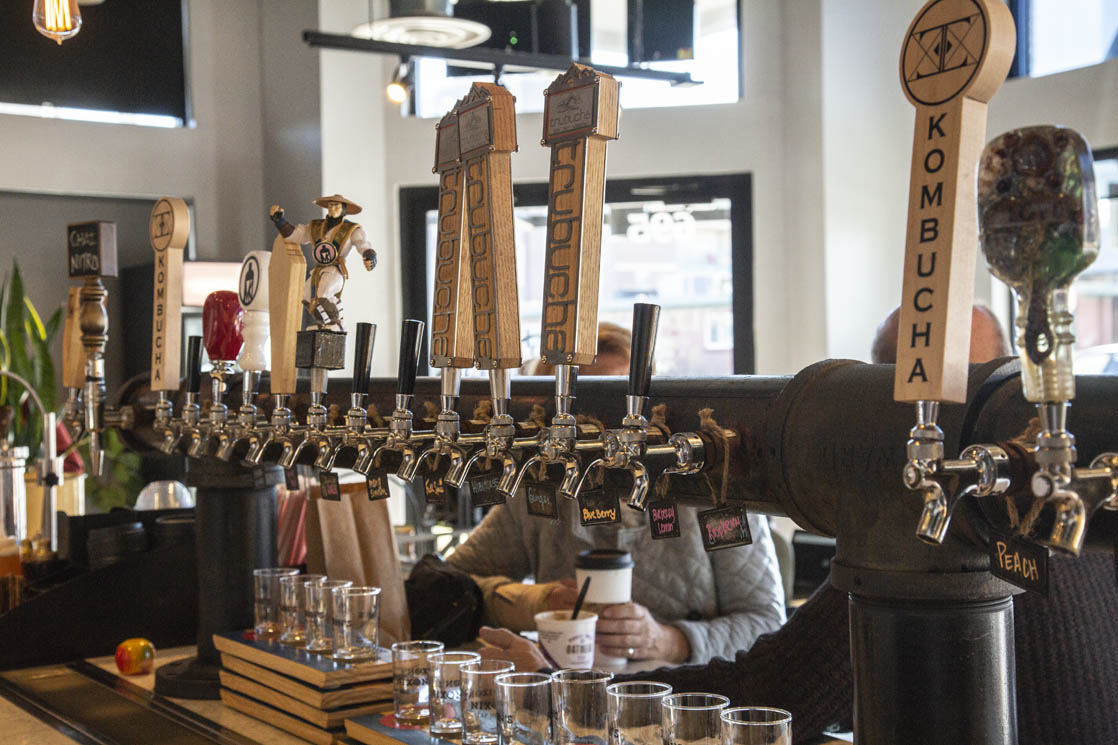
D: Do you have some specific goals you want to accomplish while being Chair this year?
J: Yeah, a couple things. I want to focus less on finding new tools and resources for our members. We have those in place already. We need to do a better job of communicating how they can benefit from them and how to use them, so that's going to be a big piece. I'm doing a monthly video series that highlights one thing CAR is doing for members with their dues. The idea is to just boil it down to a very quick, easy, concise video that will lead people to take action on something. I think that's going to be the biggest thing. We're looking to re-establish our global reach as well, to make a larger presence around the globe. Colorado is a destination and not just nationally, but internationally, too. So I want to run more efficiently and effectively with the linkage between our staff and members, and I know Tyrone Adams is doing an amazing job at that. So any way that we can support him as a Board, that's what we're going to do. My goal is really to have a little bit more fun and try some things, experiment with different communication lines and not do things the way they've been done. We're taking more chances this year.
D: Your title at Madison & Company is President, right? Can you tell us a little bit about what that role is and what you do?
J: I do a lot of coaching. My job description really is to recruit, retain and drive production. Those three segments are all I focus on. Our approach to recruiting is more of a sniper approach, not a shotgun approach. We're looking for the best of the best. We're looking for a very specific type of REALTOR® and person: abundance mindset, highly focused, self-disciplined, got some good business going, some good momentum… Our company is really built around the foundation of being a CEO of yourself. We don't just want REALTORS®, we want to help create CEOs who know how to run profit and loss statements, know how to read what kind of return they're getting on their marketing, know how to shift in the market and make sure that they're prepared when the market does slow down or change. That's what we're really focused on: developing these people into business leaders and not just selling homes, but something bigger. I spent a lot of time on that aspect of it. In addition to recruiting, there’s the retention side and thinking about how we make sure people are happy with where they are.
It's not as fun as it sounds sometimes; it's a daily grind. We spend a lot of time making sure that our agents know what we do, know what we're doing for them, make sure that they're happy, make sure they have everything they need and that we have a personal relationship with them beyond just the transactions.
[TWEET THIS] "Our company is really built around the foundation of being a CEO of yourself. We don't just want REALTORS®, we want to help create CEOs..." 
D: Do you recruit any brand new agents and train them, or are you looking for people who have more experience?
J: Our wheelhouse is not a brand new agent. We're not exceptional at that. Can we do it? Yes. Do we have mentors in place who can do it? Yes. But it's not the foundation of our business. That may change a little bit as we've got to be able to adapt to things that are happening. Look, we were all new at some point and now we're not. I don't want to turn my back to them. We don't take on a lot of newbies on a yearly basis, but when we do, we know their profile. We know that there's something in their past that shows us that they can succeed here.
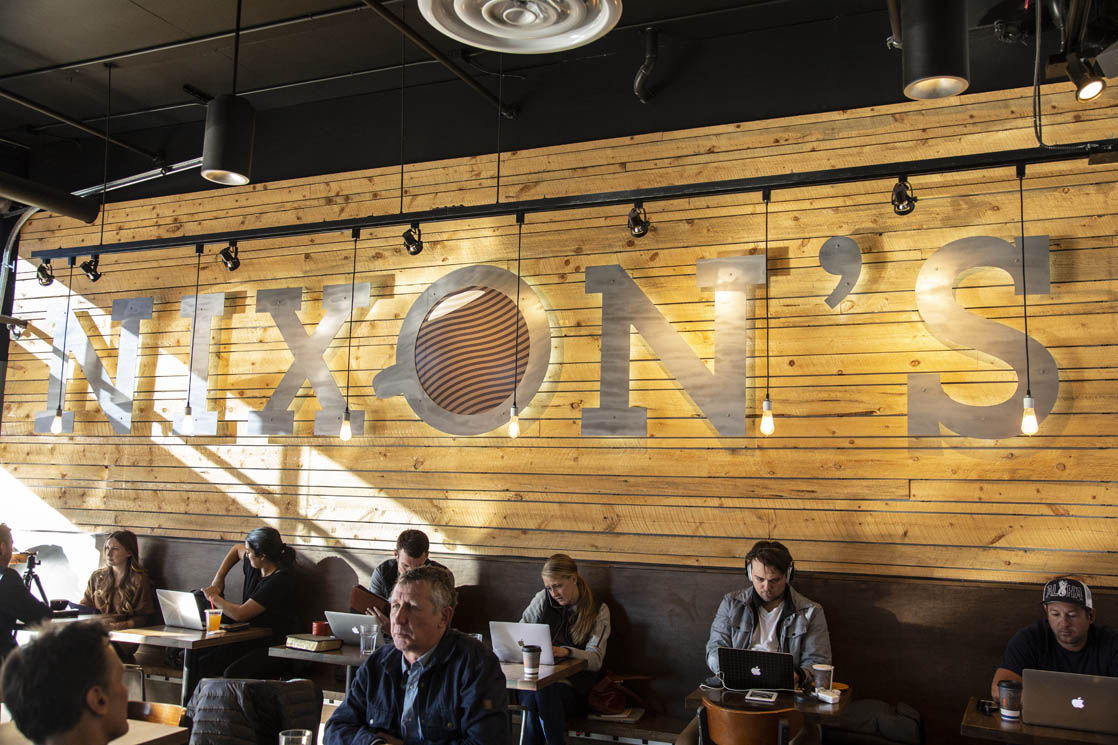
D: What traits or skills do you think make someone a good REALTOR®?
J: Someone who comes from a sales background is usually an easier transition. Anything where they had some self-discipline, where they had to create their own schedule, where they reported to themselves or had to be responsible for doing something without being told is something I always look for. It's tough to help somebody who’s coming from an office setting, working 8:00 AM to 5:00 PM with a high level of supervision or somebody telling them what to do and where to be all the time. Translating that into real estate is tough. We don't see a lot of success in that, because all of the sudden they have this newfound freedom that they think is all free, but it's not. Every minute should be used. It's that entrepreneurial spirit. Somebody who’s worked in small business or has been responsible for growth, I think they do well.
D: What do you think is the key to running a successful brokerage?
J: Know the people. Listen to them. Ask for feedback and actually listen to that feedback. At Madison, we always want to remain swift and nimble. That's our goal. So if we hear about a new initiative, an issue arises or an agent has feedback, we can look into it and implement change quickly. For us, it's all about having a great deal of open communication, and being able to react quickly.
D: How would you describe the Madison brand?
J: Local, boutique, professional, ethical, high standards and inclusive. Those are things that I think of as REALTOR®-owned.
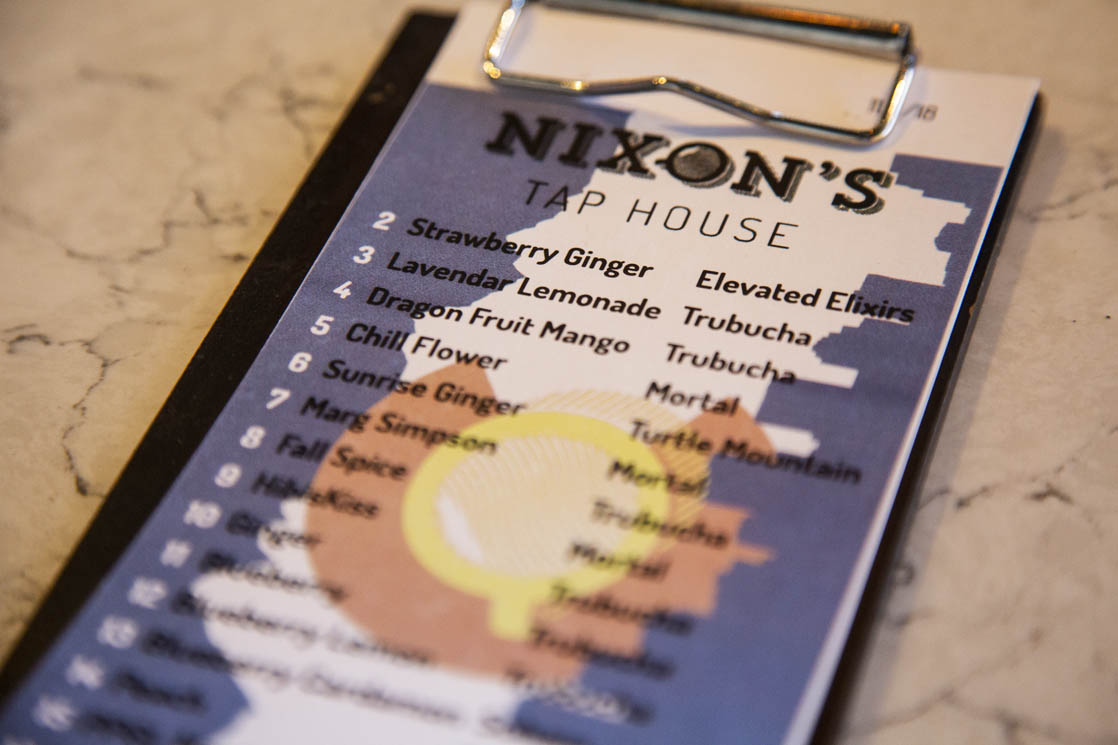
D: You guys seem pretty innovative in terms of your presence on social media and using video and digital marketing. What is your strategy and what are you guys working on?
J: We definitely are looking to do more video, more interviews and more coffee talks like this with our agents to help them tell their stories. I think it's not just being in front of the camera, but actually saying something important that resonates with people. The industry has changed so much and so has marketing. It's all about the story now, and that’s what we're working on: helping our agents tell a more genuine story. We think of innovation in terms of technology all the time. Do I have this new app or this new video camera, or this or that? I think the innovation that we seek is in terms of communication and storytelling. How do we make it even more interesting to listen to, and how do we make it resonate with the people we are targeting?
Aside from that, we're always on the hunt for great tools and technology. We travel, go to different conferences and check out what's going on, but we're very careful about what we bring on and what we don't. We're not a lead generation company. We're not out looking for lead generation websites and all that stuff, but we are seeking other opportunities and some of that may be in the relocation world and doing stuff in that arena, as well.
D: Are you personally active on social media?
J: Barely. I use Facebook, but I feel like a grandpa using it now. Everybody laughs at me. I am very much in the moment all the time, which I'm thankful for. I'm not thinking about taking a picture or writing a post. I'm happy that I live in the moment, but yes, I'm also sad that I'm not sharing some of that with friends, family and the world because I am in some amazing situations with my responsibilities at CAR and Madison. I wish I were more committed to it. I need to get on Instagram. [Update: Since this interview was recorded, Justin Knoll is now on Instagram]
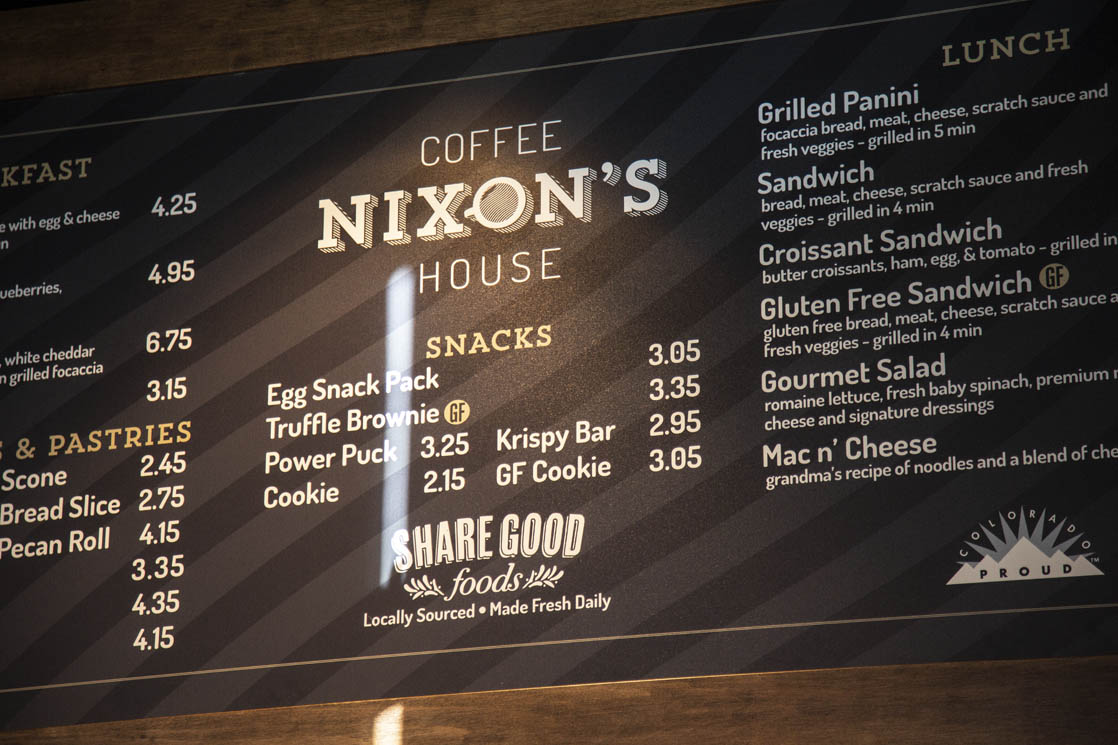
D: You're not on it at all?
J: I don't know (laughs). I think I've tweeted three times. I don't know what I'm doing, but we hire people to handle our team's social media site, so my personal one is pretty stagnant at this point. Unless it's baseball season. Then I'm more active.
D: We wanted to ask you questions on a few big topics right now. So first up, what are your thoughts on the REcolorado and Iris merger?
J: Hurry up already. It's time. It's what's needed. I think there's too much energy to go backwards on this. Whatever outside forces need to come in and make this happen, let's make it happen. It's what's best for the industry, best for our clients and best for our REALTORS®.
[TWEET THIS] "Whatever outside forces need to come in and make this happen, let's make it happen. It's what's best for the industry, best for our clients and best for our REALTORS®." 
D: What are your thoughts on electronic lockboxes? Why do you think Colorado does not have electronic lock boxes and do you think the adoption rate is ever going to increase?
J: Do I think it'll happen? Yes. I don't know if we'll ever see 100 percent adoption though. I would like to make it 100 percent, but that would require a mandate. I think why we haven't been able to get a good adoption rate is due to an unwillingness on current vendors to supply full-time staff here in the marketplace to push it out and help people adapt and adopt it. That's it. They've been unwilling to give any support or help to the rollout. If you're not rolling this out, forget it. This was tried in the late 90s, and it failed.
D: What do you think are the other major challenges the industry is facing right now? Are you worried about big tech companies like Amazon or anything like that?
J: There's always concern when you've got that much money coming into the market, but it's not the money that scares me. It's the lack of knowledge behind the money that's coming. We're seeing this with a couple of brokerages now that are running on just venture capital money. They've raised zero profit on their own, but they are completely funded by huge companies. I think when you're throwing so much money around, you forget what you're actually doing.
It's a very simple business. We’re here to help the client and protect them through the whole process. I think that gets clouded a lot with all these bells and whistles and promises that “I'm going to help you get 150 or 200 leads a month.” If they're 150 or 200 leads that aren't very good, it doesn't make the agent better and it certainly doesn't help the clients or the public. The lack of service is something that I'm concerned about. I don't see that we're getting better on the service side. Some brokerages are, but others are not. There's the concern of an Amazon, Google or Zillow coming into our industry. It is what it is. We can't stop them. We just have to be better. We have to show something different. That's where I think a lot of brokerages are working hard right now to find what exactly they are. It'll change the game, but that's okay.
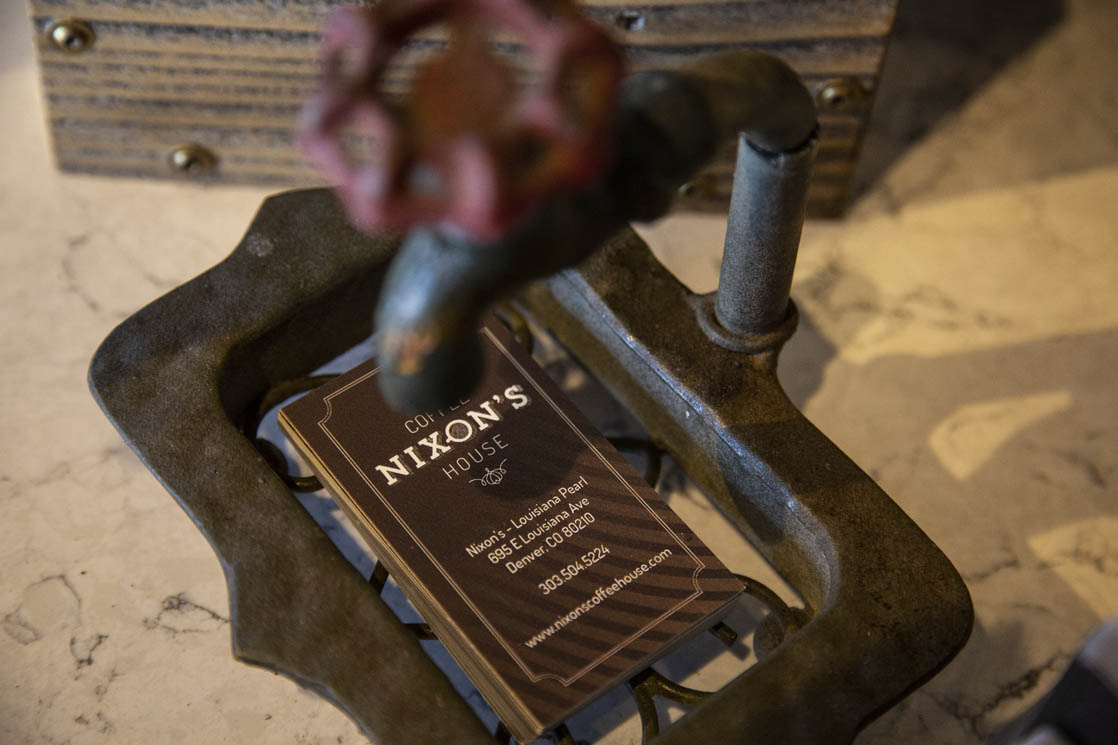
D: Perhaps change is good sometimes.
J: Change is good when it's for the right reasons. What I don't like, and this is what we're seeing a lot of right now, is the amount of money being dumped into the residential brokerage side. It’s tremendous. Investors across the board want into this space. There's not a lot of profit margin in it, so it's putting a lot of pressure on all of us to remain profitable. We're just going to try this and see what happens. It's very scary.
D: How have you seen the Denver market change over the past five or 10 years, and where do you think we're heading?
J: What concerns me about Denver's market over the past five years is the irrational decision making. Many people have felt like they have to get something done and have made decisions based on emotions and desperation. Unfortunately, irrational decision making leads to some bad things long-term. I think we're on the cusp of some of that. I don't know that we're there. I don't see any bubble coming at all. People are putting undue stress on their futures by making really tough decisions. That's a bit concerning.
As a Denver native, the absolute growth is crazy. I go to places now and I feel like I'm in another city. It's unrecognizable to me, which is exciting but also concerning. I think the infrastructure is a big, big concern for me. How we're going to handle the traffic and the people movement are concerns. Housing affordability is an absolute nightmare right now. Affordable housing is the number one concern for me in the Denver market. We've got to do something besides build smaller homes and do little developments here and there. It's a systemic problem and I think we have to promote financial literacy starting in schools for one. Affordable housing is not a function of today or someone's current situation. It's usually a function of their past... well, how do we change that story? How do we change that direction? That's really something I think Denver needs to look at much differently: how do you approach affordable housing that is not just the buildings today but in a way that changes people's trajectory?
[TWEET THIS] "Affordable housing is the number one concern for me in the Denver market. We've got to do something besides build smaller homes and do little developments here and there. It's a systemic problem and I think we have to promote financial literacy starting in schools for one." 
D: If you weren't selling real estate, what would you be doing?
J: I wanted to be a sports agent. That is something I always thought about doing. Before this, I was a custom cabinet maker. I did custom cabinetry for closets and kitchens and all kinds of fun stuff. I miss that because there was tangible evidence that I actually went to work that day. Like, "hey, I built that." Today I'm like, "I really don't know what I did." I was in six meetings and I have no idea what happened. I think either sports agency or back in the custom cabinetry world would be pretty exciting.
D: What was your biggest accomplishment - personal or professional - from 2018?
J: We had a lot going on. In 2018, I got married. That was exciting and a big accomplishment. Starting my term as the CAR chair has been fantastic. I think professionally, at Madison, it was gaining clarity on what we are and where we're going. That's been so fun and rewarding for me. I'm just super excited about that. 2018 was the year of clarity for me. I say it all the time, clarity is power. Clarity in personal, clarity in business, clarity on the volunteer side. All of it came together last year.

D: What have been your goals or things you are focusing on this year in 2019?
J: My goal for this year have been to give everything I have to all three of those segments - personal, business and volunteer. I want to go to all 32 local associations this year and visit them. I want to connect with as many members as I can. I am doing the one video a month about the one thing that CAR is doing for you. I want to have a greater presence around the state with CAR, and just really make sure people understand we're there for them to support. I want to continue expanding Madison and also help other people and coaching and all that stuff. Just a lot.
D: What's your favorite activity outside of work?
J: Coaching baseball and playing softball. Anything where I can throw a ball. My favorite thing in the world is to play catch with somebody who's good at playing catch. I love it.
D: And the last question, which we ask to everyone because it's Coffee Break, how would you describe your relationship with coffee?
J: Nonexistent (laughs). It makes me nervous because I don't know how I'm going to react. I'll have probably two or three coffees a year and it's always a white chocolate mocha. I always think they're delicious and then about an hour later, I'm like stop. I'm done. I'm done with the caffeine buzz.
D: Do you have any sort of afternoon pick me up?
J: I drink water. That’s it. I went last year with no caffeine and no alcohol. Not a drop of either. It was so easy. I don't drink a lot to begin with, but it was nice. I felt so clear and so healthy.
Xpresso Round: Rapid Fire Questions



